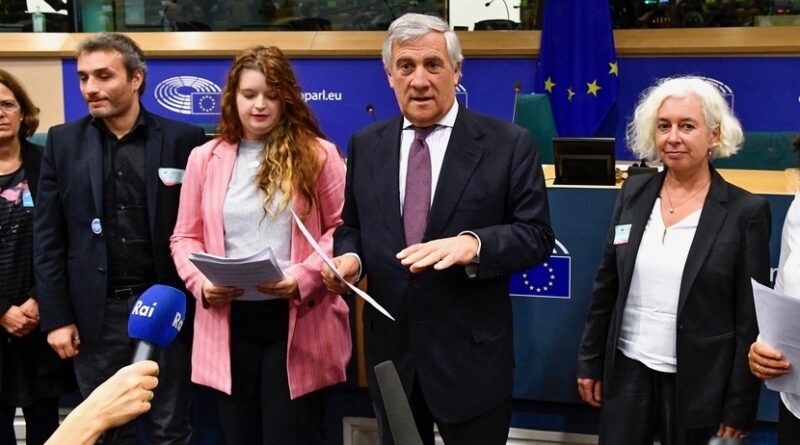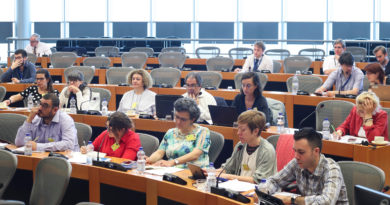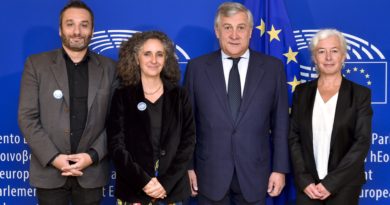A message from a British-German citizen to the Conference on the Future of Europe
As the Conference on the Future of Europe, a year-long event to consult Europeans on the set up and priorities of the European Union, is launched today, Jane Golding, founder and co-chair of citizens’ rights group British in Europe writes this article for Europe Street News.
Michel Barnier wrote in his diaries of the Brexit negotiations published this week: “There are lessons to be drawn from Brexit. There are reasons to listen to the popular feeling that expressed itself then, and continues to express itself in many parts of Europe – and to respond to it. That is going to take time, respect and political courage.”
What then can be learnt from Brexit and the citizens’ rights negotiations, which have affected more than 5 million people, as the Conference on the Future of Europe begins? There are lessons both for the EU and but especially for EU countries where there are vocal critics of the EU who seek to whip up the same desire to leave the Union.
As a British (now dual British-German) citizen, and who has advocated for the rights of British citizens as Co-Chair of British in Europe, I would make a plea above all for the Union and EU countries to avoid complacency. Popular anti-EU feeling when it is expressed should not go unchallenged and should be discussed. Key in the UK was also a complete failure to tell a positive story about the EU, to counteract the negative story that had been pushed by the majority of the British press for some forty years.
A major plank of the negative story emphasised during the Referendum revolved around immigration, which was used to push the less accessible ideological aims of sovereignty and regulatory freedom. This extended to the framing of free movement in the UK: it was generally conflated with immigration and seen as going in one direction. Certainly members of the successive governments since 2016 pursued its ending with zeal, and were delighted to confirm that it had ended ‘once and for all’.
As the UK set out its position on the negotiations, it was also not initially clear whether there was full understanding of free movement as one of the foundations of the Single Market, its interplay with other freedoms, for example, in relation to services, where movement of people is key, and, in turn, its significance for the EU as regards maintaining the integrity of the Single Market.
Finally, there was a general ignorance of how free movement related to EU citizenship and formed part of the interlinked bundle of rights that make up that citizenship, which are rights that every EU citizen has.
EU citizenship not only gives the citizen free movement but also rights to work, whether employed or self-employed, or run a business, recognition of qualifications, rights to study, rights of equal treatment, the right to healthcare, pensions, social benefits/social assistance etc. In short, the rights that make it possible for any EU citizen to live, work, study and have a family in another EU Member State – or simply to move easily across EU borders to work and live.
EU citizenship also provides the important addition of voting rights in local and European elections across the EU, although EU citizens continue to rely on their country of birth for their voting rights in national elections, which in a small number of states can be lost when they move abroad. Sadly, many British citizens are only realising now what they have lost in EU citizenship and the freedoms that it brought them.
However, Brexit also exposed potential limitations to those EU citizenship rights. There were 17.9 million EU citizens living in another country in 2019, and we represented, with the3million, working on behalf of EU citizens in the UK, more than one quarter of them. What we learned as 5 million UK citizens in the EU and EU citizens in the UK, and as the two groups, British in Europe and the3million, intensively engaging with the UK and EU during the negotiations on behalf of those citizens, was that our EU citizenship was not necessarily the fundamental status that we had believed.
The negotiations concentrated on safeguarding the rights we had built up in the country where we were currently residing, and free movement and the other interlinked rights of EU citizenship were understood in the context of the 2004 Citizenship Directive, and in relation to one country. This meant that our rights have to a large extent been safeguarded in the countries in which we live now, which is positive, but do not extend to the rest of the EU.
However, we were EU natives and we had not simply used our rights to move from our country of birth to another country: we had taken these EU-wide rights and owned them, lived and worked in multiple countries, and established European families.
Moreover, we had lived these rights as individual rights, our own personal rights, without understanding fully that they might be removed against our will, and without our say, because our country of birth decided to leave the EU.
This dichotomy was particularly striking where individual rights bordered on economic rights such as the right to practice a profession, and to work across borders, as well as have our professional qualifications recognised EU-wide: where we saw an individual right, the negotiators saw economic rights that were out of scope of the citizens’ rights negotiations, and could undermine the integrity of the Single Market if safeguarded for the third country nationals that we were to become.
It is surely no coincidence that M. Barnier’s diaries, entitled “La grande illusion”, and the conclusions I quoted at the beginning of this article, have been published three days before 9 May, Europe Day, and the day on which the Conference on the Future of Europe is launched.
So my response to his conclusions is a plea that the UK’s exit from the EU does not take the EU backwards but gives an impetus to move forward. EU citizenship, and the free movement that it brings, should be at the heart of the positive story of the EU. It is however evolving daily in the hands of EU citizens, and the EU needs to make sure that EU citizenship remains relevant to its citizens’ needs.
If one outcome of the Conference on the Future of Europe were to be the recognition of this through better implementation and updating of the 2004 Citizenship Directive, starting with better data on that implementation, and of what it means to be an EU citizen in the 21st century, acknowledging that it is not only about labour mobility and that in any case that comes in many forms, then at least some good could come out of Brexit.
Jane Golding, Founder and Co-Chair of British in Europe, a coalition of national groups working to protect the right of UK citizens in the EU following the country’s withdrawal from the Union.
Top image: Jane Golding (first on the right) at a meeting a European Parliament meeting in October 2019, with then Parliament’s President Antonio Tajani and other citizens’ rights campaigners. Photo by Dominique Hommel © European Union 2019 – Source : EP
Europe Street News is an online magazine covering citizens’ rights in the EU and the UK. We are fully independent and aim to provide factual, accurate and reliable information. As citizens’ rights are at the core of democracy, we keep our website and newsletter free. A lot of research is behind every article, so if you found this useful, please consider making a contribution to support our coverage.




